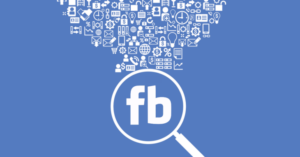By Evan Burnham, '21
 This past week, Facebook announced its plan to develop new A.I research labs in Pittsburgh and Seattle. These new research labs will join Facebook labs that currently operate in Silicon Valley, New York, Paris, and Montreal (CNET). Facebook plans to hire researchers from the neighboring universities (Carnegie Mellon in Pittsburgh and University of Washington in Seattle), in order to look into how AI can improve a variety of Facebook’s features, including filtering out fake news, sort videos and photos, and improve user security and privacy.
This past week, Facebook announced its plan to develop new A.I research labs in Pittsburgh and Seattle. These new research labs will join Facebook labs that currently operate in Silicon Valley, New York, Paris, and Montreal (CNET). Facebook plans to hire researchers from the neighboring universities (Carnegie Mellon in Pittsburgh and University of Washington in Seattle), in order to look into how AI can improve a variety of Facebook’s features, including filtering out fake news, sort videos and photos, and improve user security and privacy.
This announcement comes on the heels of Facebook CEO Mark Zuckerberg’s testimony before Congress about user privacy issues and potential instances of misuse of data. To prevent these problems from re-occuring, Facebook has increasingly utilized the power of AI to expedite many of the tasks humans have traditionally done. Already, Facebook has utilized AI to filter out hate speech and terrorist propaganda, and Zuckerberg claimed that the AI did so at a 99% effective rate (Forbes). Looking forward, Facebook may use AI to remove spam accounts, put more relevant content on users’ timelines, and make targeted advertisements more effective.
By expanding into Pittsburgh and Seattle, Facebook will be in close proximity to many of the world’s leading researchers within the fields of robotics, natural language processing, and computer vision. While these researchers will provide key insights to Facebook, and develop groundbreaking software, Facebook has been criticized for creating a “brain drain” from these universities (NYT). Brain drain refers to the phenomenon where a large tech companies hire away the brightest researchers from leading universities, and transition them from working on general research to research that benefits the corporation. To combat this reputation, Facebook has taken steps to ensure that these employees can balance working part-time for Facebook and part-time for their university. In a statement, director of AI-research at Facebook Yann LeCun said: “Facebook is careful not to deplete universities from their best faculty, by making it easy to maintain sizeable research and teaching activities in their academic labs (GeekWire).”
Overall, this decision by Facebook falls in line with the trend of increasing automation and money spent on AI research by tech giants. If Facebook can continue to add new capabilities to its AI software and automate more low-level tasks, that will free up time for employees to apply their creativity and insight into other problems the company faces. Building new AI-research labs is a long term investment for Facebook, and though it may not instantly increase profitability for the company, it will likely eventually pay off.